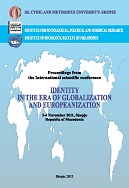Suština regiona
Author(s): Milan Petrović / Language(s): English
/ Issue: 7/2003
Keywords: deconcentration of administration; decentralization; territorial autonomy; state fragment; octroying of privileges.
In the opinion polls and proposals related to the amendment of the Constitution of the Republic of Serbia, which have been conducted and presented from different sides in the public life of this republic, the need for Serbia's regionalization has often been underlined. The questions like "Is this need really existent?", and if this question is answered confirmatively, what this regionalization should be like, can only be answered correctly if one really gets to know what region or regions are in essence. A great confusion is present in regard to this issue, not only in the general public, but also among the experts. The reason is, after all, that regions arise as extremely volatile institutional forms, as "flowers of thousands of colours". Therefore, in an attempt to clear up the said confusion, a clear-cut scientific understanding is necessary, based on an adequate systematization and classification of all the phenomenal forms of region. In an ideal situation, this should be the intention behind this text. However, due to the vastness of the material, this intention cannot be completely realized here. Hence, this text will be confined, aside from the juridical-theoretic, logical considerations, to the analysis of the most current and perhaps the most authoritative forms of region. As long as the older forms are concerned, a depiction of sorts can be found in our study titled "Regions (Forms of Territorial Autonomy) in the Theory of Law and History of Law", which appeared in the issue 112-113/2002 of the journal Letopis Matice srpske, as well as in English, in the journal Facta Universitatis, Series Law and Politics, vol. 1 for the year 2002. First of all, it should be kept in mind that regionalization is founded upon larger or smaller political ramifications and contrasts; region is a political setting of boundaries in relation to the surrounding area.
More...

